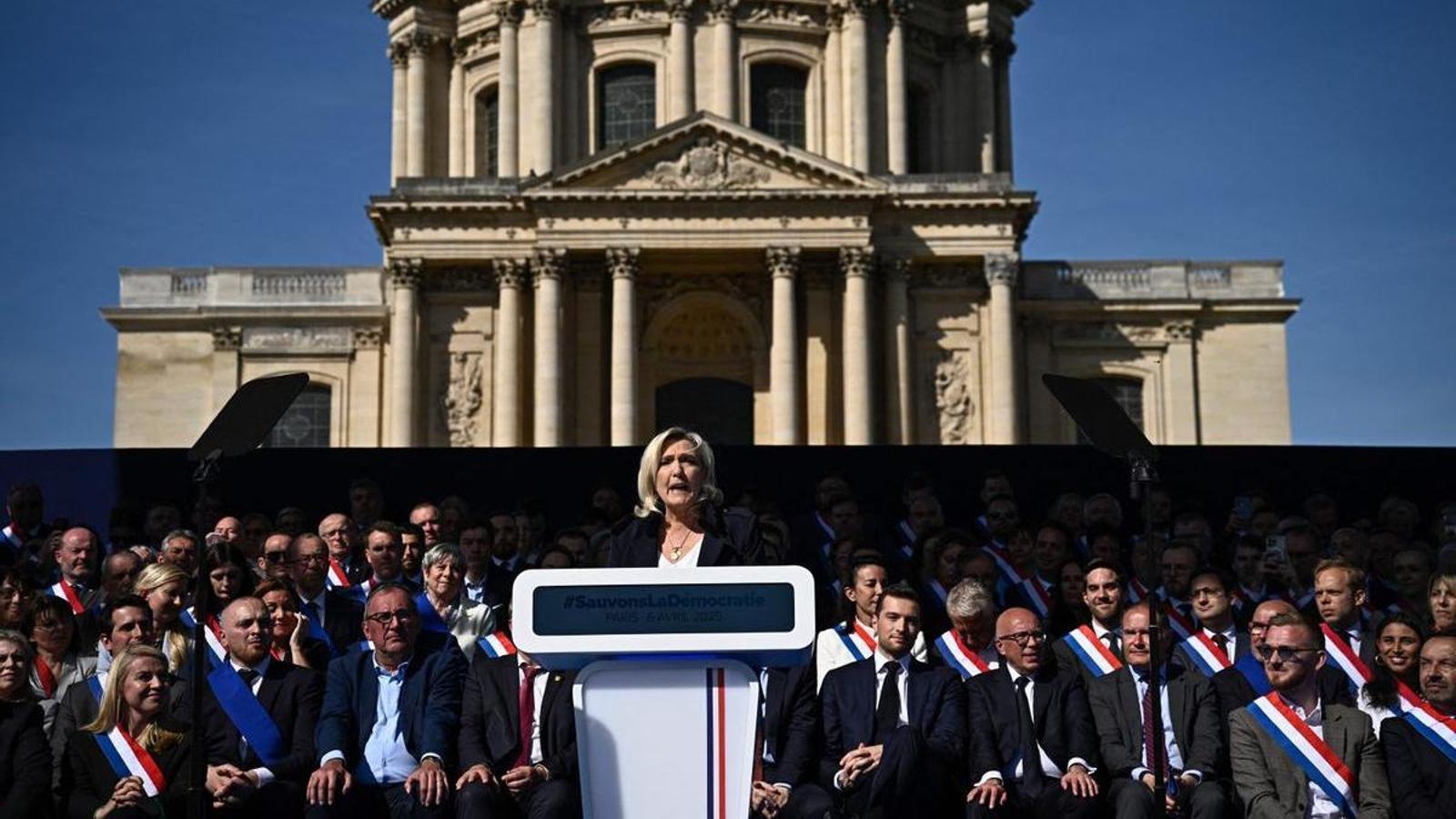Le Pen, Trumpism, and the paradox of the far right


The global far-right alliance once again demonstrated its strength yesterday at the rally in support of Marine Le Pen held in Paris. The event, which was less well-attended than planned by the organizers, had been called in protest of the ruling that condemns the leader of the National Regrouping (RN) party to four years in prison and five years of disqualification for embezzlement related to fraudulent contracts in the European Parliament, which would prevent her from running in the next presidential elections. If last week, immediately upon the announcement of the sentence, Le Pen had already received the unconditional support of Donald Trump, Elon Musk, and JD Vance, who insisted on the witch hunt against freedom of expression that, in their opinion, is taking place in Europe, yesterday, Santiago Abascal, Javier Milei, and Viktor Orbe gave her heat with videos during the event.
It's certainly an uncomfortable ruling at this time, because it positions Le Pen as a "victim" in a context where illiberal and anti-European rhetoric is gaining followers. The far-right leader, a pioneer in that space that she had led almost single-handedly for many years, had tried to moderate her rhetoric in recent years to raise her electoral threshold and break the cordon sanitaire that had until now kept her outside the institutional power of the state. However, the upcoming presidential elections were her big opportunity to seize power, and she interpreted this ruling as a way to block her path. That's why, from within her ranks, attacks on state institutions and also on the judiciary have increased, accusing them of being politicized and not neutral. Her arguments are increasingly similar to Trump's and further radicalize her rhetoric.
We're at a difficult time to analyze. All of these ultra-right movements broadly share the same conservative and ultra-liberal ideology, with a majority that unabashedly defends white supremacy and attacks the welfare state as we've known it until now. They also share their own identitarian nationalism, and Trump's tariff protectionism casts them in doubt and gives the opposition wings to portray them as unpatriotic. It remains to be seen to what extent they will be able to combine compliance with the global sheriff's instructions with the defense of national interests. And it's also questionable how the same European values they claim to defend will be able to survive with the constant attack on the core institutions of the state.
But the truth is that they have popular support and also economic, media, and international support that they haven't had until now. They can continue to gain power. In the European Union, they already govern in Italy and Hungary, and they are the second force in many other countries. We must take this into account and consider what firewalls can be put in place to prevent all these huge budgets and resources for weapons and technology, which are supposedly being deployed to protect Europe and its values, from ending up in the hands of those whose goal is precisely to destroy them.
